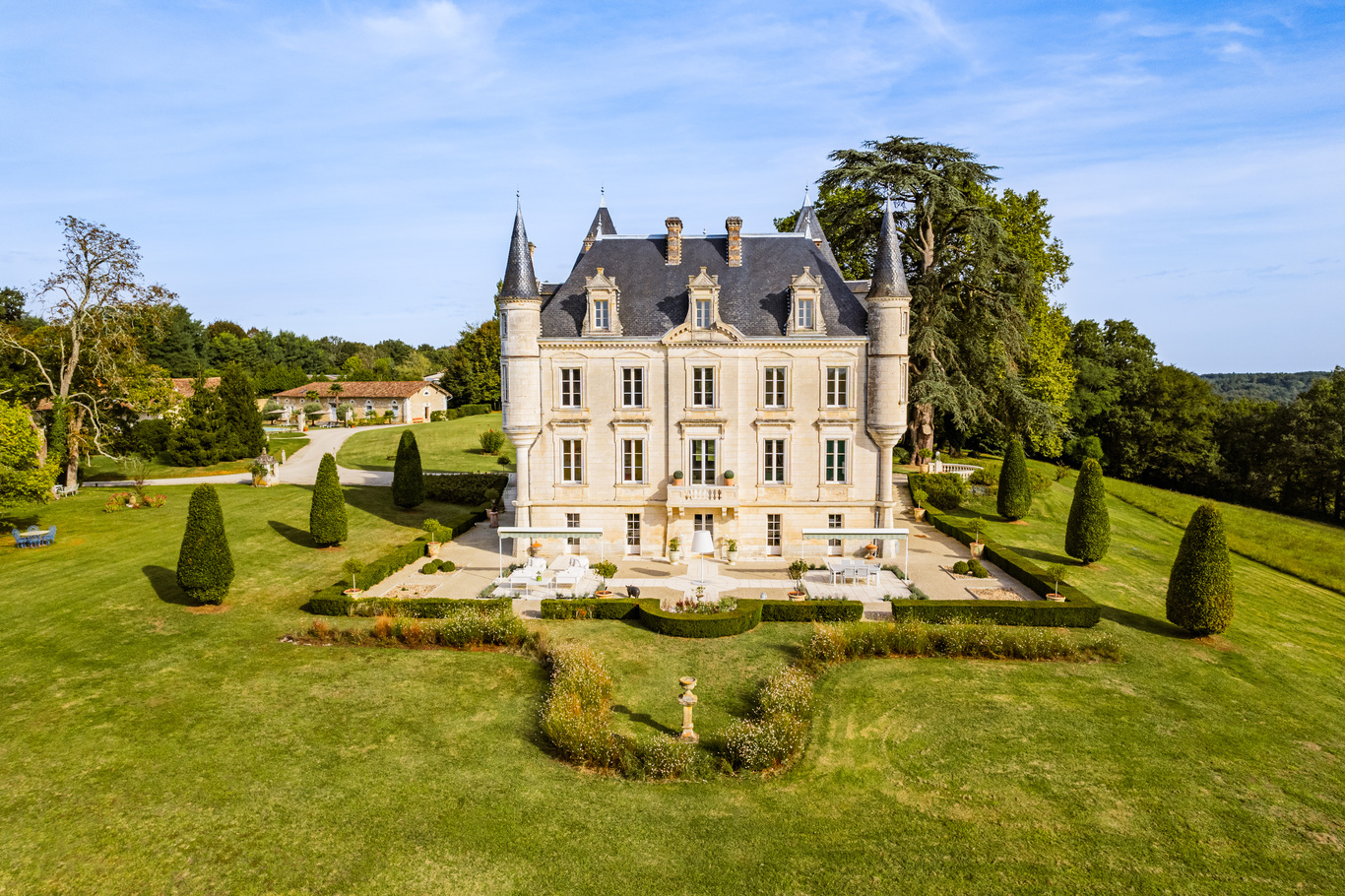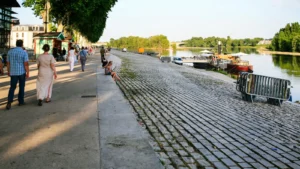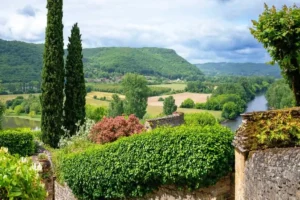Renting a castle in Europe is no longer just a fantasy reserved for royalty or celebrities. Today, historic estates across France, Italy, Germany, and beyond are open to travelers seeking a more meaningful and memorable escape. Whether you’re planning a destination wedding, a family reunion, or a private retreat, castle rentals offer a unique blend of history, privacy, and luxury—often at a surprisingly accessible price.
This guide walks you through everything you need about renting a castle in Europe, from choosing the correct location to understanding booking logistics and amenities. With the right planning, your castle stay can be more than a vacation—it can be the story you’ll tell for years.
1. Clarify Your Purpose (Wedding, Retreat, Family Vacation)
Choose the proper castle by first knowing why you’re going. Are you planning a dream wedding, a private corporate retreat, or a multi-generational family holiday? Matching a castle’s features to your event needs is crucial.
It sounds obvious, but the reason for your stay should drive every decision. Castles offer a wide range of facilities, depending on their typical use.
If it’s a wedding or special event, you’ll want a venue with gardens or ballrooms for ceremonies, on-site catering or a licensed kitchen, and accommodations for your guests.
(Survey data shows nearly 60% of people consider castle rentals for weddings.) For a corporate retreat or workshop, prioritize meeting spaces, AV equipment, and privacy from outside distractions. If it’s a family holiday or vacation with friends, look for kid-friendly spaces, multiple living areas, and easy cooking facilities.
Think through guest count and logistics. Some castles may only rent by the entire estate, while others might allow you to book a wing or specific rooms. Always confirm the maximum capacity (adults and children) to ensure everyone fits comfortably.
In short, define your goal first. Choosing a castle for a reunion differs from picking one for an intimate romantic getaway. Let your purpose narrow down the vast options.
2. Pick the Right Location
Europe’s castles span from misty moors to sun-drenched vineyards. Decide if you want a Loire Valley chateau, a Highland fortress, or a Tuscan hilltop castle. When choosing your destination, consider climate, scenery, travel ease, and local activities.
Once you know your purpose, consider where you want to stay in Europe. France, England, Scotland, Germany, Italy, and Spain all have rich castle-lands, but they offer different experiences. For example, surveys show Americans are most interested in castle rentals in England, France, and Italy.
In France, you’ll find many châteaux in regions like the Loire Valley (medieval palaces), Dordogne (stone forts with countryside views), Bordeaux (vineyard estates), and Provence (hilltop castles). Each location has its perks. The Bordeaux or Provence chateaux are ideal if you crave sun and wine. Consider the Loire’s Renaissance manors or Bavaria’s mountaintop castles if you want a dramatic storybook setting.
Italy’s castles (Castelli) often sit in Tuscany or Umbria, which have scenic olive groves. Misty glens and lochs surround Scotland’s castles, while Germany’s are steeped in fairytale forests.
Also, consider travel logistics: check the nearest airports or train stations and determine whether a rental car is needed. For example, Disneyland’s famous wallpaper castles aside, you might be surprised to learn that Château de Lasfonds in Dordogne (southwest France) is only 2.5 hours by high-speed train from Paris.
Consider the season, too. Summer is peak wedding season, which brings higher prices and limited availability. Off-peak seasons (spring/fall) may offer lower rates and more flexibility. If France is on your shortlist, this château holidays guide breaks down regions, trip styles, and sample itineraries.
Also, think about the weather (an autumn castle in the Scottish Highlands will be chilly, while a French chateau in mid-July will be warm and sunny). Ultimately, match the castle’s country and region to the style of holiday you want—wine tours vs. hiking vs. beachside, etc.
3. Check Amenities and Services (Full-Service vs. Self-Catering)
Castles range from full-service resorts with chefs and staff to simple estates you’ll manage yourself. Before booking, list the amenities you need (kitchen, pool, laundry, Wi-Fi, etc.) and ask what’s included. A castle like Kilmartin in Scotland even offers a private chef and an on-site vegetable garden!
Not all castles are created equal on the comfort scale. Some are all-inclusive experiences, providing staff, meals, and entertainment; others are like renting a big house where you cook and clean yourselves.
Ask key questions up front:
- Included Staff: Does the rental include any staff (cook/chef, housekeeper, concierge)? At Kilmartin Castle in Scotland, guests enjoy a private chef and a foraging garden.
- Meals/Food: Is breakfast or dinner provided? Is there a nearby restaurant? If not, is the kitchen fully equipped? (If it’s self-catering, remember large castles may only have a few appliances for many guests.)
- Housekeeping: Will the castle be cleaned daily, weekly, or not at all? Are linens and towels changed?
- Pools & Recreation: Is there a pool, hot tub, tennis court, or games room? Many châteaux now feature heated pools and sports facilities.
- Modern Necessities: Ensure that the heating/air conditioning works and that there is good Internet access. Some older castles can have spotty Wi-Fi or require generators, so don’t assume all comforts are automatic.
In short, read the listing details carefully. If the description or the owner’s replies are vague, ask directly. A “luxury” castle with staff typically costs more per night, but can save you hours of work (no cooking or cleaning yourself).
A self-catering castle might be more budget-friendly, but plan to handle more of your logistics. Decide what level of convenience you need. Remember, the more inclusive the services are, the fewer surprises during your stay.
4. Understand the Booking Process and Policies
Treat a castle rental like any large property booking—but with a touch of extra planning. Book well in advance (many top castles go fast), and read all the fine print: minimum stay requirements, deposits, cancellation rules, fees, and insurance. Early, clear communication with the owner or agency can prevent headaches later.
Booking an entire castle is a big commitment, so start early. Many high-demand castles (especially for weddings or peak summer dates) require booking a year or more in advance. Expect to pay a substantial deposit (often 20–50%) to hold the reservation.
Read the rental contract carefully: look for the refund/cancellation policy, any penalties for date changes, and what happens if you have fewer guests than expected.
Also, clarify the total costs. Many castles charge extra for cleaning, heating, or other services. Ask if there is a security/damage deposit and how or when it will be returned. Don’t overlook travel insurance, which covers cancellations, travel delays, and liability (some castles have rules about damage to historic furniture, for example).
Finally, use trusted channels. You can book through specialized castle rental agencies (many have in-house event planners), reputable villa rental sites, or directly from owners. Look for clear communication, reviews, or testimonials from previous guests.
Although castle rentals might seem old-world, modern vacation rental platforms often streamline the booking process. Like any upscale villa or resort, treat the booking like a significant event: get everything in writing and confirm all details well before arrival.
5. Consider Accessibility and Logistics
Outdoor setting Chateau de Lasfonds
Check how easy it is to get to the castle, not just how amazing it looks. Look up nearby airports, train stations, or highways. Some castles are remote, and renting a car or arranging transfers might be essential. For example, Château de Lasfonds in Dordogne is secluded yet “just a 2.5‑hour TGV ride from Paris,” followed by a short drive.
Even if the castle is dreamy, it would help if guests could reach it. Before you settle on a property, note its transportation links:
- Airports/Trains: How far is the nearest airport or central train station? The Lasfonds castle is an excellent example of accessibility; it’s in rural Dordogne but only a few hours by train from Paris, with local airports a short drive away. Many European castles are within an hour or two of regional airports.
- Road Access: Are the roads to the castle paved and passable for cars (even in winter)? If the property is deep in the mountains, is 4WD needed? Some historic castles have long gravel driveways or may be reached by a single-track road. If you have a large or elderly party, check if the roads/trails are suitable.
- Car Rental/Shuttles: If it’s rural, you may need a rental car for groceries and sightseeing. See if the castle offers shuttle services or has partnerships with local drivers. In many cases, renting a car gives you the most freedom. For guests who prefer not to drive, consider whether public transport plus taxis is an option.
- On-site Parking: Ensure secure parking for your group’s vehicles. Some castle grounds have ample parking lots, while others have just a small courtyard.
In short, ensure your epic destination isn’t too isolated for comfort. Check exactly how to get there using the property info or ask the owner. A castle that feels remote on paper might be conveniently located, like Lasfonds. Balancing seclusion with access is key: you want the castle’s charm and privacy, but not a frustrating journey for you or your guests.
6. Embrace the History and Charm
Appreciate what makes a castle special: its story and ambiance. Take time to learn the castle’s history or take a guided tour. Look for preserved features like stone walls, tapestries, arched doorways, or ancient furniture. The whole point of a castle stay is to step into another era!
One of the most excellent perks of a castle stay is stepping back in time. Many travelers book castles to “immerse themselves in history” and enjoy “peace in a secluded area”. Don’t be shy about indulging in the fantasy: ask if the owners provide any historic background, or look up the property’s story online. Some castles were homes of nobility, soldiers’ barracks, or even monastic retreats—knowing these stories can make your stay richer.
Most castles are restored but still retain their original character. You might fall asleep under centuries-old wood beams or dine in a great hall lit by torchlight (or its modern equivalent). Don’t worry about looking out of place; these properties have been turned into rentals precisely to be lived in, not museum displays.
Many châteaux seamlessly blend old and new. Enjoy any offered tours, local legends, or ghost stories—part of the fun is the fairytale atmosphere.
That said, remember that you’re staying in a historic place that may have delicate features. Treat the property with care. Use lockable rooms to safeguard valuables if the castle is large and open to staff, and follow any house rules about antiques or courtyard areas.
By respecting the castle’s heritage, you help preserve these wonders for future guests. In return, relax and soak up the charm: live like a countess or knight for a few days, relish the grand views, and make memories in a setting far beyond ordinary hotels.
7. Compare Options and Value
Amenities offered by Chateau de Lasfonds
“Castle” doesn’t always mean “outrageously expensive” or “one-size-fits-all.” Shop around and do the math. Castles come in all sizes and price points. An entire castle might average around $1,200/night worldwide, but for a group of 20, that’s only about $60 per person per night. Look at per-person cost, included services, and seasonal deals to get the best value.
Finally, treat it like any major purchase: compare features, costs, and reviews. Here’s how to make sure you get the best deal:
- Inclusions: A “cheaper” castle might charge extra for cleaning, pool heating, or onsite staff. A slightly higher base price might include those, making it more economical overall. Ask for a complete quote showing all fees.
- Seasonality: Check if the castle offers off-season rates or mid-week discounts. Staying outside peak wedding months can drastically lower the cost.
- Reviews: Read past guests’ comments. A glamorous photo online might hide quirks (e.g., noisy road nearby, flimsy staircase). Positive reviews from large groups suggest the place works well for events.
- Amenities Match: Some castles include continental breakfast or chef’s services; others don’t. Make sure you’re comparing apples to apples. If one castle is pricier but includes catering, it might be cheaper than a “lower” price castle where you must bring in all your food.
- Value Adds: Look for castles with extras you’ll use. Maybe one includes bicycles or kayaks; another has an on-site winery tasting. These perks add value to your stay.
In the end, the best value castle is the one that fits your group’s needs without paying for things you don’t need. Don’t hesitate to ask the owner or rental agent to explain the pricing. Many castles also rent by the week; dividing weekly rates per night can help if you plan a short stay.
By comparing capacity, included services, and guest feedback, you’ll find a castle that feels like a bargain for what you get—legendary accommodation with memories to match.
Fabulous Castles You Can Rent in Europe
Image from unlimphotos. Reichenstein Castle on the Middle Rhine
Across Europe, historic castles are opening their doors to travelers looking for more than a hotel stay. These aren’t museum pieces—they’re privately owned, carefully restored estates available for exclusive rental, each offering its own story, setting, and level of luxury.
Kilmartin Castle – Argyll, Scotland
A 16th-century tower house turned five-bedroom luxury retreat, Kilmartin Castle, offers full private rental for up to ten guests. Each room features an en-suite bath, and the kitchen is fully stocked for group cooking or catered by private chefs on request. Guests enjoy organic produce from the castle garden, wood-burning fireplaces, and access to a glasshouse dining area for intimate events.
While primarily a self-catering stay, the castle occasionally hosts micro-weddings. Bookings require a three-night minimum and are best made directly for the lowest rates and personalized support.
Castello di Vicarello – Tuscany, Italy
Midway between Rome and Florence, Castello di Vicarello is a 12th-century estate nestled among 40 hectares of vineyards and olive groves in Tuscany’s Maremma region. This family-run retreat features uniquely designed suites and a private villa, each blending historic charm with global influences.
Guests enjoy organic farm-to-table dining, panoramic views, and curated experiences like truffle hunting, sailing, horseback riding, and cooking classes. With two infinity pools, a serene spa, and private wedding options, Vicarello offers total seclusion and authentic Tuscan hospitality in a setting where time slows down.
Burg Reichenstein – Trechtingshausen, Germany
Perched above the Rhine River in Trechtingshausen, Burg Reichenstein is a neo-Gothic castle with roots in the 13th century. Once a stronghold for robber barons, it now operates as a museum, boutique hotel, and event venue.
Guests can stay in elegantly restored rooms, dine in the castle restaurant, and explore curated exhibitions, including 19th-century interiors, rare stove plates, and a 1,200-piece global trophy collection. With sweeping river views and authentic furnishings, Reichenstein offers a richly historic and immersive stay in Germany’s romantic Rhine Valley.
Château de Saint-Martory – Haute-Garonne, France
Château de Saint-Martory is a privately owned 16th-century estate with over 40 hectares of land between the Pyrenees and the Garonne River. Lovingly restored with antique and modern design elements, the château reflects centuries of French art de vivre.
It offers exclusive weekly rentals for holidays, weddings, and corporate retreats. With its Renaissance architecture, Gothic Revival touches, and pastoral surroundings, the property combines history with comfort in a tranquil setting halfway between Toulouse and Tarbes—ideal for nature lovers, cyclists, and creative groups seeking privacy and inspiration.
Killahara Castle, Ireland
Killahara Castle is a meticulously restored 16th-century tower house in County Tipperary. It offers self-catering stays for up to 12 guests. With central heating, a modern kitchen, and laundry facilities, it delivers rare comfort within ancient stone walls.
Guests can explore spiral staircases, seven spacious bedrooms, and centuries of rich Irish history—stories of treachery, rebellion, and restoration echo throughout. Surrounded by Tipperary’s scenic countryside, the castle is ideal for family holidays, small groups, and heritage seekers looking to experience medieval living without sacrificing modern convenience.
Schloss Ernegg, Austria
The Auersperg family owns Schloss Ernegg, a 12th-century castle in the heart of Austria available for exclusive hire from May to October. Whether planning a romantic wedding, a golf holiday, or a peaceful retreat, this historic estate offers an unforgettable atmosphere with sweeping countryside views.
Guests can book individual rooms during the week or reserve the whole property for private events. With its refined charm and natural serenity, Schloss Ernegg blends timeless elegance with modern comfort in a setting for rest, celebration, and inspiration.
Each castle offers a different flavor from Europe, whether you’re after fairytale elegance, rugged authenticity, or total seclusion. And yes, they’re all real, rentable, and ready for your next story-worthy escape.
Spotlight: Renting a Castle in France – Château de Lasfonds & More
Chateau de Lasfonds
Château de Lasfonds is more than a wedding venue—it’s a secluded luxury estate for guests who want privacy, comfort, and authentic French charm. Set atop a scenic hill in Dordogne, this 19th-century château offers panoramic countryside views, expansive grounds, and a high-touch experience rarely found in traditional hotels.
Designed to host up to 20 guests, Lasfonds is ideal for multi-generational families, intimate reunions, private wellness escapes, or creative retreats. While it does accommodate weddings, its primary strength lies in its versatility as a self-contained holiday destination. Guests stay in three charming guesthouses, each offering restored interiors with elegant period touches and modern amenities.
What sets Château de Lasfonds apart is its focus on comfort, privacy, and tailored service. The estate features a heated private pool, a hot tub built into a historic stone basin, and multiple lounges for both social and quiet moments. For those seeking ease, a private chef service is available to prepare regional cuisine using fresh, local ingredients. On sunny days, dine alfresco in the walled garden or enjoy an afternoon apéritif by the courtyard.
Activities on and around the estate go beyond the expected. Explore wine tastings, guided château history tours, or sunset yoga overlooking the fields. Kids and adults can enjoy table tennis, board games, and outdoor picnics. The Dordogne region offers hot air balloon rides, prehistoric cave visits, and canoeing along the river for those feeling adventurous.
The château balances historic charm with complete modern comfort: high-speed Wi-Fi, ensuite bedrooms, a large country kitchen, and a flat-screen TV tucked discreetly in the main salon. Despite its tranquility, Lasfonds is remarkably accessible—just a 2.5-hour TGV ride from Paris, followed by a short drive.
Whether it’s a milestone celebration or a quiet break from city life, Château de Lasfonds offers a timeless setting where guests can disconnect and recharge. Bookings are exclusive, ensuring the entire estate is yours to enjoy, without sharing the pool, dining areas, or gardens with other guests.
Ready to plan a stay that feels personal, private, and rooted in heritage? Contact Château de Lasfonds to check availability and tailor your experience.
Other top châteaux in France: In the Loire Valley, Château de Challain (near Angers) is famed as a fairytale wedding venue, and Château de Cassini (close to Chinon) is a quaint riverside villa. Provence’s Domaine de Mazan sits in a vineyard near Avignon, while Burgundy’s Château de la Belle is a countryside family retreat.
In Europe beyond France, you’ll find gems like Italy’s Castello di Montignano (a Tuscan hilltop castle) or Spain’s Parador de Oropesa (a historic fortress hotel).
Even if these names aren’t on your radar, major rental sites list hundreds of castles across Europe—just search “castle rental” or “château” in your chosen region. Each offers a unique style and story, so explore to find one that sparks your imagination.
Myth-Busting: Common Misconceptions about Renting a Castle
Many assume castle stays are just for fairy-tale fantasies – so let’s debunk the most prominent myths:
Myth: Castle rentals are prohibitively expensive.
Reality: Castles range in price. While a private castle can average about $1,200 per night, splitting it among groups usually makes it affordable. For smaller groups, some castles can be rented by the room or used midweek for lower rates.
Depending on location, you can even rent a single castle room for as little as $97–$382 per night. Groups often find value deals—divide the total cost by your headcount and compare it to a luxury resort per person.
Myth: Castles are cold, damp, and lack amenities.
BBQ stand set up at Château de Lasfonds, featuring a modern grill station
Reality: Many historic castles have been completely renovated into luxury retreats. They often feel more like 5-star villas than medieval ruins. For example, Kilmartin Castle now offers a private chef, modern heating, and even guest gardens.
Château de Lasfonds boasts full heating, Wi-Fi, a modern kitchen, and a hot tub disguised as a centuries-old bath. In short, expect Wi-Fi, hot showers, cozy fireplaces, and comfortable beds. (Some very rustic castles exist, but most rentals advertise modern comforts upfront.)
Myth: Castles are only for huge weddings or events.
Reality: Weddings are a popular reason to rent a castle, but they’re not the only use case. Surveys show about 29% of people book them for vacations and 27% for reunions. Castles come in all sizes: some accommodate 2–4 couples, others hold 50+ guests.
There are intimate 10-person châteaux and grand 100-person fortresses. Even if you have a small family, you can often rent just part of a castle or choose a cozier estate. Plus, the unique setting is a treat for any occasion—imagine a holiday gift exchange in a medieval great hall or a team-building weekend in a stone courtyard.
Myth: Castles are too remote or inaccessible.
Reality: Not at all. Many castles are conveniently located near towns or transport hubs. As noted, Lasfonds is just a short train ride from Paris. Others sit on the edge of historic villages or near airports. Yes, some are deep in the woods, but those often come with offered shuttles or recommended drivers.
Even if you drive a bit, most roads in France, Germany, and the UK are well-maintained. Check the listing’s “Getting There” info (or ask the host), but don’t dismiss a castle for seeming “off the map”—many remote castles are quite reachable.
Myth: Booking a castle is complicated.

Setup for outdoor dining at Chateau de Lasfonds
Reality: In 2025, it’s easier than ever. Specialist agencies and online platforms list hundreds of castles with clear availability calendars, pricing, and reviews. If you can book a beachfront villa, you can book a castle.
Remember the scale: you will fill out similar details (dates, guest count) and sign a rental agreement. The key is communicating early and clearly. If in doubt, use a reputable agency or rental site with good support. Castle owners want your stay to go as smoothly as you do, so transparency is common.
In short, don’t let myths scare you. Castle rentals in Europe are a real, accessible vacation option. With some planning, you’ll find the perfect castle that matches your budget and style.
FAQs on Renting a Castle in Europe
What is included in the cost when renting a castle in Europe?
When renting a castle, the base price may include accommodation, linens, kitchen use, and sometimes light cleaning. Extras like chefs, guided tours, event setup, or airport transfers may cost more. Before booking, always request a complete breakdown to avoid surprise fees and understand the full value.
Is renting a castle in Europe safe and secure?
Yes, renting a castle is generally safe. Most castles have secure entrances, gated grounds, and sometimes on-site caretakers. Some even offer private security for high-profile guests or events. Still, always check safety features like locks, alarms, and fire exits, especially when traveling with children or elderly guests.
Can I rent part of a castle instead of the whole estate?
Many castles offer partial rentals like suites, apartments, or private wings. Renting a castle this way is ideal for solo travelers or couples wanting the experience without the full cost. Check if other guests will be present and what common areas are shared.
What amenities can I expect when renting a castle in Europe?
Amenities vary widely, but many castles include Wi-Fi, modern bathrooms, gardens, pools, and event spaces. Some offer chefs, housekeepers, or guided tours. Others are more rustic. When renting a castle, constantly review the amenity list and photos to match your expectations and needs, especially for group or event travel.
How far in advance should I book when renting a castle in Europe?
It’s best to book 6–12 months ahead when renting a European castle, especially for peak summer months or weddings. Castles are limited and highly demanded. Booking early ensures more choices, better prices, and time to plan logistics like travel, vendors, and legal documents for events.
Do I need a car when renting a castle in Europe?
A car is usually recommended when renting a castle, as many are in the countryside or remote areas. Public transport may not reach the property. A car makes it easier to explore nearby towns, attractions, and restaurants at your own pace. Some castles also offer private driver services.
Why is Château de Lasfonds a top choice for renting a castle in France?
Château de Lasfonds offers a private, luxurious setting ideal for weddings, retreats, or family stays. When renting a castle in France, its intimate scale, scenic countryside views, and heritage-rich interiors make it a standout option. Guests enjoy exclusivity, personalized service, and authentic French château charm.
What amenities are included when renting a castle like Château de Lasfonds?
Renting a castle such as Château de Lasfonds includes private suites, event spaces, elegant gardens, and often custom concierge services. It blends historic architecture with modern comforts like Wi-Fi, ensuite bathrooms, and catering options—perfect for guests seeking a high-end yet intimate castle experience.
Can I host a wedding when renting a castle like Château de Lasfonds?
Yes, Château de Lasfonds is a popular venue for destination weddings. Renting a castle like this offers full access to ceremony spaces, bridal suites, and outdoor gardens. The estate accommodates events with privacy and sophistication, allowing you to celebrate in a storybook setting tailored to your vision.




